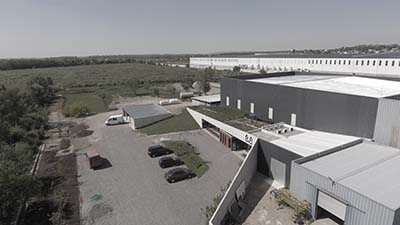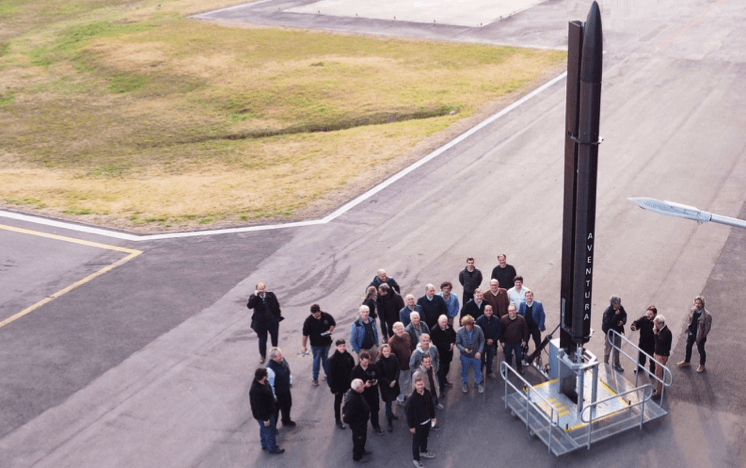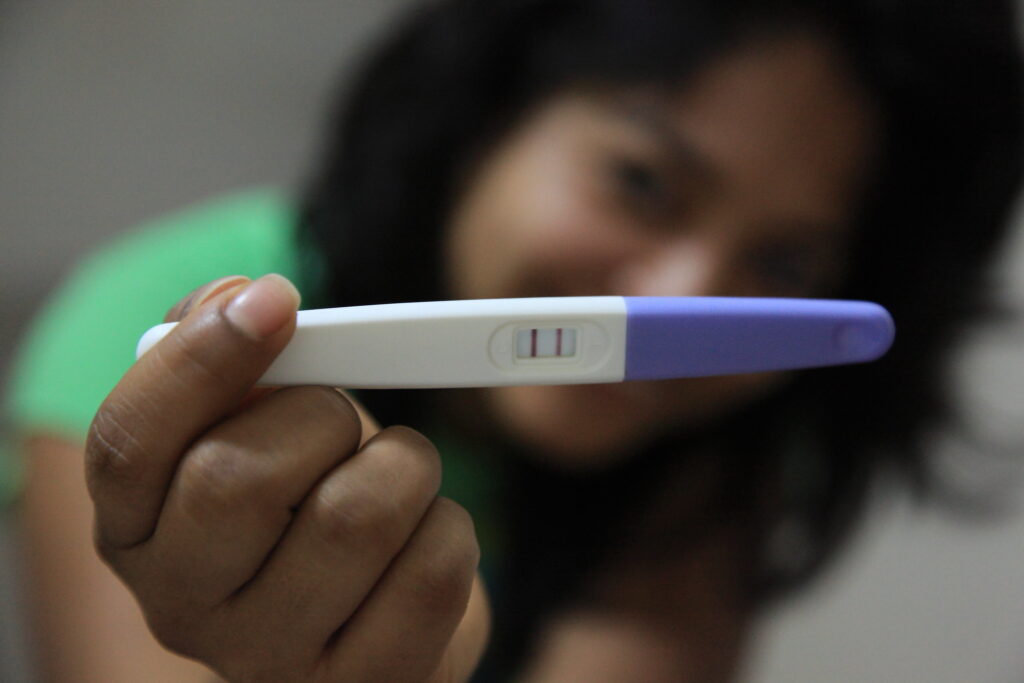The space sector is going through the most disruptive time in history. In 2021, the record for the most orbital launch attempts in a year was broken, something that had not happened since the space and moon race era. From new exploration missions to the return to the Moon with NASA’s Artemis, and the exponential growth of low earth orbit satellites, the sector is being driven to new levels by the entry of new space private companies.
While humanity breaks into a new space era, the industry continues to be dominated by leading companies from the United States., Europe, Russia, India, and China. However, in Argentina, space startup TLON Space is not only flipping the switch on the establishment but disrupting the sector with innovation. Their ultra-light rocket, Aventura I, takes space engineering to the limit to deliver sustainable, low-cost and personalised, high-rate international launch services.
We spoke to Luis María Monsegur, co-owner and COO of TLON Space, to understand the company’s vision, mission and goals and speak about the technological innovations they are presenting to revolutionize access to space.
In the space sector, the cost of a kilogram to orbit rules the industry. To bring down these costs companies and organisations build massive-sized rockets. The more payload a rocket can deliver to space the lower the cost, but satellites need to rideshare their way into orbit. Additionally, big rockets are extremely expensive to build, maintain and operate. Small, reusable, and low-cost rockets would solve this problem. However, technological advancements prevented them from being built—until now. In this sense, TLON Space’s rocket is a long-searched holy grail.
“The Aventura I sums up a revolutionary launch system, which is made up of 18 proprietary technological innovations, which we have developed over these last 17 years,” Monsegur says.
TLON Space reshaped the Tsiolkovsky equation. Known by NASA as the “Tyranny of Rocket equation,” this equation calculates the complex relationships between a rocket’s mass, velocity, fuel, and weight. It has long forced rockets to be big to accommodate the necessary fuel to escape the forces of Earth and reach space.
“Today, we can affirm that it (Aventura I rocket) is a robust and proven technology that has led us to reconfigure the Tsiolkovsky equation that establishes the mass ratio as a weight-power ratio,” Monsegur adds.

“These innovations that will revolutionize the aerospace industry are based on three concepts: vehicle weight, propellant energy (fuel and oxidizer), and engine performance,” Monsegur from TLON Space explains.
The startup is also innovating in fuels. The company designed the ECOSTAR engines for the rocket with sustainability at its core from the start. “That is why we say it (the rocket) is ecological, given that its combustion does not pollute the environment,” Monsegur says.
As rocket launches to orbit increase, carbon emissions have been in the spotlight, and pressure for the industry to go green is building up. “We use alcohols in combination with hydrogen peroxide, making the entire fuel operation a low-cost, simple logistic execution,” Monsegur adds.
The benefits of new low-cost, small-scale, rapid deployment rocket services can not be denied. With this vision, the company expects to build 200 rocket vehicles per year, dramatically reducing the industry’s average rocket fabrication time and costs. Additionally, TLON Space developed a unique, simple, and mobile launch system that allows them to operate rockets into space from different global points. The launch system will not only provide flexibility to increase the number of weekly launches but meet clients closer to home.
With a height of just 10 metres and capable of carrying a payload of 25 kilos—perfect for nanosatellites—the Aventura I rocket is half the size of the first SpaceX Falcon 1 rocket. The countdown for the first TLON launch has already begun. The Argentine company will be flying six commercial missions to space starting the second semester of 2023.
Looking ahead to the near future, the Aventura II is already in design. This bigger rocket will allow the company to enter the bigger satellite market with a payload capacity set from 50 to 200 kilograms.
Rockets that don’t leave waste behind
The satellite sector is also facing modern challenges directly associated with the exponential growth it is experiencing. The low earth orbits of our planet have become crowded with operating satellites that crisscross paths, challenging navigation operations in space. Additionally, the amount of space debris and defunct or malfunctioning satellites has reached concerning levels, causing not only space contamination but posing real dangers of collisions in space.
Recovering rocket stages is critical. TLON Space’s first stage is reusable and recoverable. Additionally, the section of the spaceship that reaches orbit can execute a reentry and completely incinerate in the atmosphere leaving no residue to avoid the proliferation of space debris.

To ensure the safety of their space flights, TLON Space works with local authorities. Their launches in Argentina are coordinated with the Argentinean Air Navigation Company (EANA) and the Naval Hydrography Service (SHN). They also developed guidance, navigation, and control systems for their vehicle to reach specifically selected orbital planes, which are evaluated through their orbital injection system developed in-house.
“It is clear that the market needs to focus on two axes, which is what we have built our business structure on. The first is to reduce industry costs and the second is to be fast in development and implementation,” Monsegur says.
From agriculture to climate change, energy, communications, and science: satellites are critical for all countries to fully develop their potential. Low-cost, sustainable rocket and space technology innovation has the power to drive development, transform and increase access and create new inclusive space opportunities for the world.










